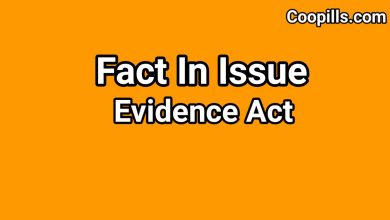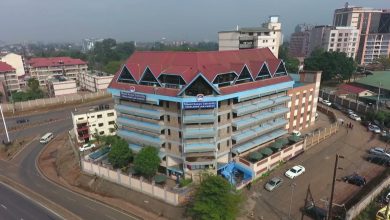Enforcement of fundamental human Rights in Nigeria
In this article we shall be looking at the Enforcement of fundamental human Rights in Nigeria, courts, practice and procedure.

Table of Contents
What is fundamental human rights
Under the administration of justice in Nigeria, fundamental human rights are duly recognised as an important rights of human. As a result, they were entrenched in the 1999 constitution by way of protecting this rights. In case of violations, the law had laid down procedure that an applicants need to follow. Compliance
to same is a must. Must actions bordering on fundamental human rights are often rejected by court in Nigeria due to non compliance with rules. As a result of this, people do have the believe that our rights are only stated in books and can never be enforce in court. This, i must say is an erroneous assumption. The court as it is, is a court of law, and not a court of justice. For you to maintain an action for violation of your rights, conditions precedent for same must be complied with. In a bid to cure this erroneous assumption, this article will unravel the procedures that must be taken for an applicant to succeed in actions bordering on fundamental human rights enforcement.
PROCEDURE FOR ENFORCEMENT OF fUNDAMENTAL RIGHTS
The provision of section 46(3) of the 1999 Constitution of the Federal Republic of Nigeria empowers the Chief Justice of Nigeria to make rule with respect to the Practice and Procedure to be adopted in dealing with actions under the fundamental Rights provisions of Chapter IV of the Constitution. Accordingly, the Fundamental Rights (Enforcement Procedure) Rule have been made under Chapter IV of the Constitution to commence from 1st of January 1980 but new Rules of Court have been made in 2009.
In construing the various Orders and Rules under the Enforcement Procedure Rules, the Court have had course to construed the Rules as they relates to the issue of limitation of actions, enlargement of time, time within which actions can be filed and effect of non compliance with the Rules, etc.
The manner in which the application for the enforcement of fundamental rights under Chapter IV of the 1999 can be brought, is irrelevant once it is clear that such application seeks redress for infringement of the rights so guaranteed under the Constitution. An applicant seeking to enforce a provision under Chapter IV of the Constitution has to commence his/her action by way of originating motion.
As a condition precedent to the commencement of an action for the enforcement of fundamental rights under
the Fundamental Rights (Enforcement Procedure) Rules1979, the applicant must obtain the leave of the Court to bring the application. See The Registered Trustees F.T.C.C.N Vs Ikwechiegh (2000) 13 NWLR (Pt.683) 1.
The application for leave must be by Ex-parte supported by a statement setting out the name and description of the Applicant, the relief sought and an affidavit verifying the facts relied on. See Order 1 Rule 2(3) of the Fundamental Rights ( Enforcement Procedure) Rules. The Court will not Grant leave to apply for an order under thebRules unless the application is made within 12 months from the date of the happening of the event complained of. In other words, a law suit for the enforcement of right is statutorily limited and becomes statutorily barred if not brought within 12 months from the day of the breach.
It must be noted as well that the affidavit verifying the fact required under Order 1 Rule 2 (3) of the Fundamental Rights (Enforcement Procedure) Rules is a condition precedent to granting leave to enforce fundamental rights.
This is because at this stage, the proceedings is Ex-parte and the order to be made would be on the facts, as such the facts must be verified by an affidavit.
The applicant is required to set out the facts relied upon in the statement in support. The statement of fact should not be on oath. After setting out the fact, an Applicant is then required to verify on oath the facts relied on. See Oyewole Vs Shehu (1995) 8 NWLR (Pt. 414) 484.
The Fundamental Rights (Enforcement
Procedure)
Rules are not mere adjectival Rules of Court amenable to be changed or manoeuvred by a Party. Observance of these rules is as fundamental as the entrenched rights, and an applicant who wants to successfully enforce his fundamental rights must carefully observe the rules.
Hence, strict compliance with the provision of Order 2 Rule 4 requiring filing of affidavit of service is a condition precedent without which an application under the Fundamental Rights (Enforcement Procedure) Rules will not be competent.
See Agbakoba Vs S.S.S (1994) 6 NWLR (Pt.351) 415, 500;
The State Vs Commissioner of Police: Re Apollo (1987) 4 NWLR (Pt.63) 121; Paulinus Nwaeze Vs C.O.P & Ors (2001) 1 cases on Human Rights page 449; Bashiru Akanji Olasupo Vs University of Benin suit No. B/197/95 reported in vol. 2 Nigerian Police Interest Litigation by Jiti Ogunye Pg 433; Comrade Christopher Egwuasi & Ors Vs Commissioner of Police Imo State & Ors. (2006) cases on Human Right 200
How to file an action for enforcement of fundamental human right before the high court of a state
In an action for fundamental human right, strick adherence to method and procedure to file such application is of Paramount important. In doing this, the first thing to consider before filing an action is mode of commencement of such application. I.e
How To commence an application for
enforcement of fundamental human right
Generally, there are four(4) ways to which a civil case can be commenced which are:
1. WRIT OF SUMMON (USUALLY USED WHEN FACT ARE IN ISSUE)
2. ORIGINATING MOTION (USUALLY USED FOR ENFORCEMENT OF FUNDAMENTAL HUMAN RIGHT AND OTHER RELATED MATTERS)
3. ORIGINATING SUMMON (USUALLY USED TO COMMENCE AN ACTION FOR INTERPRETATION OF LAWS OR RULES)
4. PETITION (MOSTLY USED TO COMMENCE ACTION FOR DIVORCE AND OTHER MATTERS RELATING TO PETITION)
A perusal of the mode of commencement of action listed above will clearly indicate that an action for fundamental human right will start or commenced by originating motion. Haven ascertain the mode upon which the suit will commence, the next thing to consider is the requirements for an action to be commenced by originating motion.
An originating motion must be supported with the following:
1. An affidavit setting out the fact relied upon.
2. All the exhibit to be relied upon
3. A written address in support of the application.
The above listed requirements are of Paramount important for an application for enforcement of fundamental human right to succeed.
As regard to the affidavit, the only person that can deposed to such an affidavit is the applicant himself. The only exception to this is when the applicant is in police custody or is prevented by any other occurrence. In this regard, another person can be allow to deposed to the affidavit provided that he was informed of the fact by the applicant or he has personal knowledge of the fact. The is in compliance with order 2 rule 4 of fundament enforcement procedural rules 2009 which provides that:
” The affidavit shall be made by the Applicant, but where the applicant is in custody or if for any reason is unable to swear to an affidavit, the affidavit shall be made by a person who has personal knowledge of the facts or by a person who has been informed of the facts by the Applicant, stating that the Applicant is unable to depose personally to the affidavit.”
Similarly, Sometimes the applicant can come by way of motion ex parte for the enforcement of his/her right provided that such an applicant satisfied the court that he may suffer an exceptional hardship if the application comes by originating processes. See order 4 rule 3 (FREP) which provides that:
”The Court may, if satisfied that exceptional hardship may be caused to the Applicant before the service of the application especially when the life or liberty of the applicant is involved, hear the applicant ex parte upon such interim reliefs as the justice of the application may demand.”
It therefore follows from the above that, the court can hear the applicant by ex parte if extreme hardship on the applicant is very imminent. The application by ex parte must also be supported by an affidavit wherein the ground relied upon for the application to be hear ex parte shall be stated.
PARTIES IN THE FUNDAMENTAL RIGHTS ACTION
Who are the necessary parties in proceedings under the Fundamental Rights (Enforcement Procedure) Rules, 1979? Any person who alleges that any of the provisions of Chapter IV of the Constitution of the Federal Republic of Nigeria 1999 (as amended) has been, is being or likely to be contravened in any state in relation to him may apply to a High Court in that state for redress – see Section 46(1) of the 1999 Constitution. That is to say that actions under the aforementioned Rules must be personalanc not representative. If an individual feels that his Fundamental Right or human right has been violated, he should take action personally for the alleged infraction of right of one differs in content and degree from the complaint of the other. It is therefore a wrong joinder of action and incompetent for different individuals to join in one action to enforce different cause of action. In other words, for a person to have locus standi in an action for the enforcement of fundamental rights, he must be affected i.e suffered a breach of such rights. But however, when the matter involve right to life of a deceased victim, anybody would have the locus standi as we are our brother’s keeper. See Alilu Akilu Vs Chief Gani Fawehinmi.
CIRCUMSTANCES WHERE INFRINGEMENT OF FUNDAMENTAL RIGHTS CAN BE JUSTIFIABLE
It is worthy to note at this stage that the 1999 constitution of federal republic of Nigeria has laid down certain exception to be apply upon chapter IV of the aforementioned constitution.
By the virtue of Section 45 subsection (1) provided that; ‘’nothing in sections 37, 38, 39, 40 and 41 of this constitution shall invalidate any law that is reasonably justifiable in a democratic society”
Whereas the Paragraph (a) of the actual section provides thus;
(a) in the interest of defense, public safety, public order, public morality or public health’. or
(b) for the purpose of protecting the rights and freedom of other persons.
From the above cited authority, one will see that in an event where there is need to protect public safety or for the sake of protecting the rights of another person, infringement upon an individual rights maybe justifiable.
CONCLUSION
Under the administration of justice in
Nigeria, our rights as human are duly recognised. These rights as they were, are sacrosanct, and same should not be violated by anybody. In an evident where any of these rights is being or likely to be infringed upon, the law had laid down procedures that must be followed for an action to stand on such infringement. Strict adherence to this procedure is Paramount. Any deviation from same may negate the success of such an action in court. It therefore follows that, It is a must for an applicant whose fundamental rights was infringed to know the court to file
action for the enforcement of same. In addition, it is advisable to engage the service of a legal practitioner for him/her to know the appropriate steps to take.
By: Ambali Abdulazeez Muhammed is a student of law, at university of maiduguri, Borno state.
He is C.E.O of LAW AMPHITHEATER and he is so much interested in poem, academic writing.
You can reach him, email:ambaliabdulazeez123@@gmail.com,
or contact/whatsapp:+2348165658589







